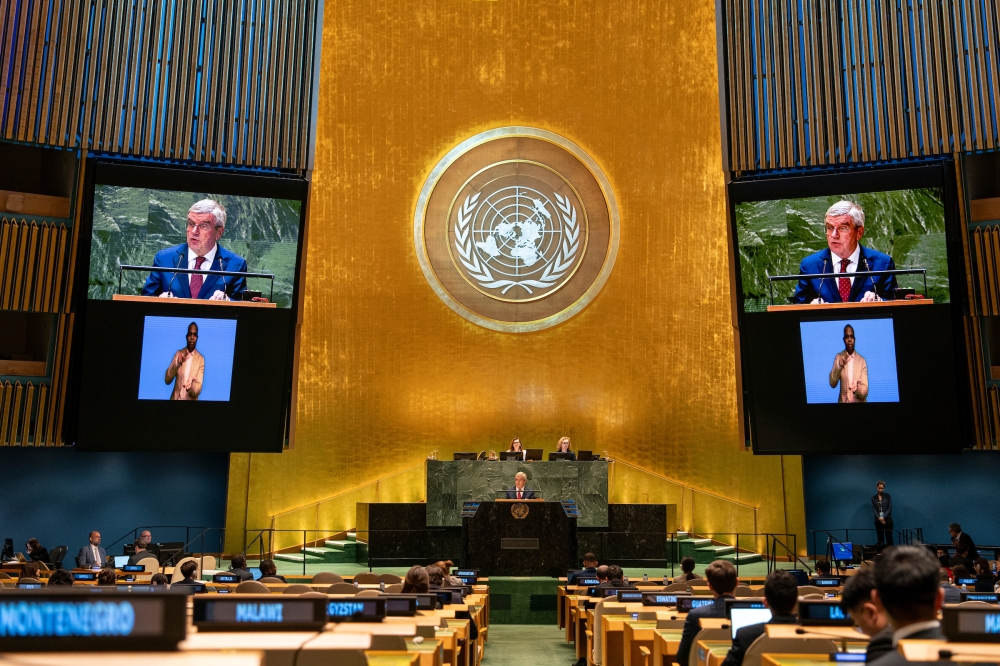

World leaders, on September 22, adopted a ground-breaking Pact for the Future – to transform global governance – that includes a global digital compact and a declaration on future generations.
A key focus of the pact is the reform of the UN Security Council to address the historical under-representation of Africa and enhance the Council’s effectiveness, transparency, and accountability.
ALSO READ: Kagame weighs in on Africa’s proposed Security Council seats
According to a related UN press release, this Pact is the culmination of an inclusive years-long process to adapt international cooperation to the realities of today and the challenges of tomorrow. The Pact addresses a wide range of issues, including peace and security, sustainable development, climate change, digital cooperation, human rights, gender, youth, and governance transformation.
Described by the UN as one of the most comprehensive international agreements in decades, it seeks to enhance the effectiveness of international institutions in the face of a world that has changed dramatically.
ALSO READ: Nduhungirehe makes case for global cooperation at UN Summit of the Future
UN Secretary-General António Guterres remarked that the Pact opens doors to new opportunities.
Security Council representation, veto review
World leaders emphasised the urgent need for these reforms to maintain international peace as outlined in the UN Charter.
They agreed on the guiding principles they said were earlier identified in the intergovernmental negotiations on the question of equitable representation on and increase in the membership of the Security Council and other matters related to the Council.
ALSO READ: US supports two permanent UN Security Council seats for Africa
According to the pact, the guiding principles include redressing "the historical injustice against Africa” as a priority and, while treating Africa as a special case, improve the representation of the underrepresented and unrepresented regions and groups, such as Asia-Pacific, Latin America and the Caribbean.
UN indicated that the pact seeks to, among others, achieve the most progressive and concrete commitment to Security Council reform since the 1960s, with plans to improve the effectiveness and representativeness of the Council, including by redressing the historical under-representation of Africa as a priority.
ALSO READ: Why the UN Summit of the Future must focus on Africa
"We will reform the Security Council, recognising the urgent need to make it more representative, inclusive, transparent, efficient, effective, democratic and accountable,” the Heads of State and Government, representing the peoples of the world, committed in the adopted pact document.
Another critical aspect is the future of the veto power, with leaders vowing to limit its scope and establish a review clause to ensure the Council's ongoing relevance.
Nuclear disarmament, addressing lethal autonomous weapons risks, and outer space arms race
The pact, the UN observed, also represents the first multilateral recommitment to nuclear disarmament in more than a decade, with a clear commitment to the goal of totally eliminating nuclear weapons.
It also features an agreement to strengthen international frameworks that govern outer space, including a commitment to prevent an arms race in outer space and the need to ensure all countries can benefit from the safe and sustainable exploration of outer space.
It also addresses the risks associated with lethal autonomous weapons, reaffirming that the laws of war should govern these technologies.
Lethal autonomous weapon systems (LAWS) are a special class of weapon systems that use sensor suites and computer algorithms to independently identify a target and employ an onboard weapon system to engage and destroy the target without manual human control of the system, according to Congressional Research Service for the US Congress.
Reforming international financial architecture to meet development needs
On international financial architecture, leaders pledged to accelerate reforms enabling countries to borrow sustainably for long-term development.
They expressed concern about rising debt burdens in developing nations, calling for enhanced multilateral responses to prevent debt crises and facilitate timely relief.
ALSO READ: Kagame: Now is the time to make international financial system fit for purpose
According to the UN Trade and Development (UNCTAD), the world is facing an unprecedented development crisis: the debt crisis. It indicated that global public debt has more than doubled from $51 trillion in 2010 and may surpass $100 trillion by [end of] 2024, stating that "people, not markets, are paying the price.”
https://x.com/UNCTAD/status/1837539921445163366
World leaders highlighted the need for greater representation of developing countries in global economic decision-making and welcomed reforms to the International Monetary Fund aimed at enhancing their voice. The leaders committed to mobilising additional financing to meet Sustainable Development Goals, ensuring support reaches those most in need.
Meanwhile, they welcomed steps to improve the voice and representation of developing countries, and the creation of a 25th chair on the International Monetary Fund Executive Board for sub-Saharan Africa and recent changes to quotas and voting power.


